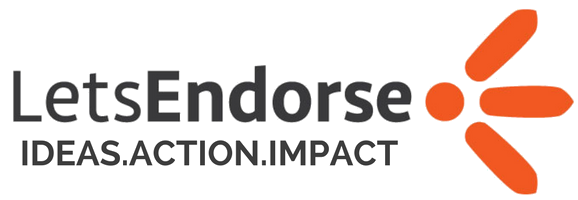As a Founder or Member of a non-profit, you have consciously chosen your own path, a difficult one, a great one. And needless to say, fundraising or resource mobilization is a critically important function. Often, asking for funds from companies and individuals involves an understandable amount of hesitation and thus can seem like a daunting task. You might worry that it sounds like begging, or you are worried that others will say no, thus causing you to hesitate when the fateful meeting begins. This can reflect in your voice and body language, which trained persons can pick up on.
Therefore, eliminating hesitation and gaining confidence go together.

Source: https://xkcd.com/1089/
When you eliminate hesitation while asking for funds, people are more likely to view your organization in a positive light. They will see an individual confident in their mission and cause. Whether you obtain the required funds or not, you have established a good impression of yourself and your organization, and both sides gain valuable contacts to call on in the future. It also gives you greater clarity on the cause you are working for, because you now know what you are promoting and need finances for, and why.
The next step to take is how to prepare yourself in such a way that you can ask potential contributors for funds with minimal hesitation and concern. A lack of preparation can feed into your hesitation, and it is essential to prevent this from happening:
1. Notes. Extensive notes.
Be prepared for questions your potential givers may ask. They want to know what exactly it is they’re contributing for. As the conversation continues, you will find yourself more at ease when you realize that you’re prepared for most eventualities, if not all. Also, have a timeline; direct the conversation to where you want it to go. Start with one topic, then another, then another, and organize yourself well. When you’re organized, it is easier to ask for funds than when you have no idea what you’re doing.
2. Practice.
Stand in front of a mirror and talk. Or ask a friend/family member/colleague to act as a potential contributor and do a simulation of the experience. When you reach the actual meeting, it’ll be easier after having rehearsed what you want to say several times.
3. Start small.
Start with smaller companies, or with people you already know, as potential contributors. You are less likely to be intimidated by an old friend who is now an executive, as you know how their mind works, and what they are likely to ask, as well as how you can convince them. Smaller companies also have a less formal atmosphere, which can really change the mood of the conversation. Once you have successfully interacted with some, you can try stepping out of your comfort zone. You can even go in a small group to ask for funds, adding to your support system.
4. Relax.
It’s okay if you make a mistake; don’t panic, just correct yourself quickly. If you find yourself getting nervous, take a sip of water (if possible), a few deep breaths, and look at your notes again.
5. Be honest.
If you’re new to asking for funds, or have had some failed meetings in the past, it is okay to admit it if the other person wants to know. They will appreciate your honesty, and may even be impressed by the fact that you’re learning from your setbacks.
In addition, asking for funds with little to no hesitation can improve your own self-confidence, which will then impact other spheres of your life, be it personal or professional.
Thus, there are three areas that benefit from your shunning hesitation: your organization, your potential contributors, and yourself.


